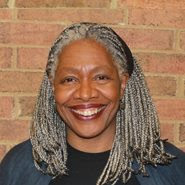How lame was Jay Z’s statement about his collaboration with Barneys New York? It was so lame, that even the conservative New York Daily News took him to task. I did that when I posted yesterday. Today I’ll let the Daily News speak for itself.
“When he joined a partnership with upscale retailer Barneys, Shawn “Jay Z” Carter applied his celebrity, fashion sense and marketing savvy to raising large sums of money for his charitable foundation. All hail.
Certainly, Carter was shocked to read, via the Daily News front page, about mounting evidence of racial profiling by his chic collaborators.
First, he learned that store security had triggered the groundless arrest of a young African-American man who purchased a $350 belt with a debit card wrongly assumed to be fraudulent. Then, he learned that a similar false presumption brought detectives down on a young African-American woman.
Were he reading closely — and Carter and public relations aides surely were — he also saw that in 2013, Barneys had logged more than 50 calls to the NYPD alleging credit card fraud against specific individuals.
The store’s allegations produced a total of only 11 arrests, according to the police department, strongly suggesting that Barneys has overwhelmingly been siccing cops on consumers baselessly judged to have been criminals. How many were white, black or other? Neither the police nor Barneys will say.
None of this was Carter’s fault.
But it became his responsibility, because with power and the wealth that begets power come social obligations. These can be heavy for notables who become role models and even more onerous for those, like Carter, who rise to iconic stature. In this cultural stratosphere, he carries the dreams, allegiance and commercial support of the public, and the public, perhaps especially the black public, expects his allegiance in return.
Carter had long put forth the face of just that kind of generous, socially conscious figure. Now, in the aftermath of the racial profiling revelations, the public looks into the soul of a peevishly egotistical man who appears to have erased from memory his long-ago address in Brooklyn’s Marcy Houses.
After three days of why-are-you-bothering-me evasions, Carter on Saturday issued a statement that portrayed him — and not Barneys arrestees Trayon Christian and Kayla Phillips — as the mightily wronged party.
Twice his name appeared in the statement; never once theirs.
He complained of being “demonized and denounced”; they were swarmed by cops and held in custody.
He imagined “negligent, erroneous reports and attacks on my character.” There were none, but Christian and Phillips suffered the very real fear and humiliation of being held and interrogated by police, wondering whether their only offense was skin color.
Finally, in the eighth paragraph of 10 paragraphs of bitterness, Carter said that he had been working “to get to the bottom of these incidents,” wanted a “solution that doesn’t harm all those that stand to benefit from this collaboration,” and empathized with anyone who had been profiled.
Carter’s cry of victimization must be taken as the measure of the man, for he issued it not in the heat of the moment but after three days of consideration and consultation. The tone deafness of a man so musically talented is all the more glaring in comparison with the words and actions of the NYPD and Barneys.
While neither has been remotely forthcoming with facts, both have recognized the gravity of the Christian and Phillips cases. The cops who arrested Christian apologized, and the department has launched an Internal Affairs investigation. Barneys quickly brought in a civil rights lawyer to review its actions and policies.
And Carter felt aggrieved that anyone might hope to hear his voice reverberate for justice. The smallness of a big man is most shocking.”
